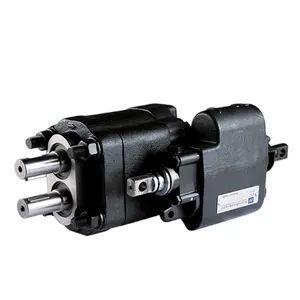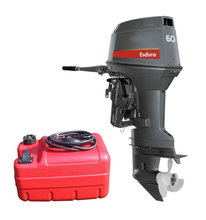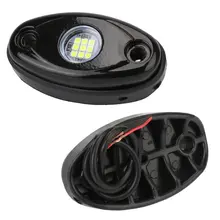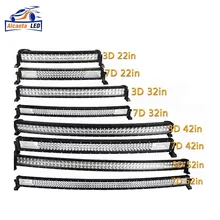What are Truck Transmissions
Truck transmissions are sophisticated mechanical components that form an integral part of a truck's drivetrain. They are designed to transmit power from the engine to the wheels, enabling a truck to move. This transmission of power is crucial for managing the heavy loads that trucks are typically required to haul. The transmission system ensures that the power delivered is optimized according to the speed and torque required for various driving conditions, whether it’s cruising on a highway or maneuvering through rough terrain.
Just like transmissions in smaller vehicles, truck transmissions come in various types, each with its own set of gears and mechanisms that allow the vehicle to operate efficiently. These gears regulate the engine's RPMs (revolutions per minute) and ensure that it doesn't overexert itself while maintaining the desired speed. To put it simply, the transmission allows the truck to use its power in the most effective way possible.
Truck transmissions are built to handle much larger loads and more frequent gear shifts than those in passenger cars. They are engineered for durability and reliability, as downtime can be costly in trucking operations. The principles on how these systems work are based on mechanical engineering concepts where gear ratios determine how much torque is transmitted to the wheels. The correct gear ratio can mean the difference between a smooth ride and an inefficient one that consumes too much fuel or places undue stress on the engine.
For businesses involved in logistics, construction, or any industry requiring the transportation of goods, understanding truck transmissions is vital. Knowledge of how these systems work and their maintenance requirements can lead to improved efficiency, reduced operational costs, and prolonged vehicle life.
Types of Truck Transmissions
The world of truck transmissions is diverse with multiple options tailored for different needs. The common types include:
Manual Transmission: Often found in older models or trucks that require driver involvement, manual transmissions feature a series of gears that must be shifted manually. They offer control over gear selection but require more skill from the driver.
Automatic Transmission: These transmissions automatically select the appropriate gear ratio without any manual input needed from the driver. This type allows for easier operation, especially in heavy traffic conditions where constant shifting is needed.
Automated Manual Transmission (AMT): Combining elements of both manual and automatic systems, AMTs use sensors, actuators, and processors to automate clutch and shift operations. They provide efficiency similar to manual transmissions with the convenience of automatics.
Continuously Variable Transmission (CVT): CVTs offer a seamless range of gear ratios for smooth acceleration without steps or shifts. They adjust automatically to deliver optimal power and efficiency but are less common in heavy-duty trucks due to durability concerns with very high loads.
Each type has common use cases based on trade-offs between control, ease of use, fuel efficiency, and cost.
How to choose Truck Transmissions
Choosing the right truck transmission involves considering several factors that align with your business needs and operational demands. For businesses requiring precision control over their vehicle's performance, particularly those operating in rugged terrains or performing specialized tasks such as towing heavy loads uphill, a manual transmission might be preferable due to its direct driver engagement and control.
On the other hand, automatic transmissions can significantly reduce driver fatigue—an important consideration for long-haul operations—by handling gear changes automatically. This ease of use can contribute positively to driver comfort over extended periods behind the wheel.
For businesses looking for a middle ground between manual control and automatic convenience, an automated manual transmission could be an ideal choice. AMTs offer better fuel efficiency compared to traditional automatic transmissions while still automating shifting processes.
When selecting a transmission on Alibaba.com, factors such as durability in relation to expected load capacities, ease of maintenance considering frequency of use, compatibility with existing truck models in your fleet, and after-sales support should be evaluated carefully.
Best Truck Transmissions on Alibaba.com
Alibaba.com stands as a global wholesale marketplace that connects businesses with a vast selection of truck transmissions suitable for various commercial applications. Whether you operate a fleet of logistics trucks or manage construction machinery requiring robust transmission systems, Alibaba.com provides access to a diverse inventory sourced from trusted suppliers worldwide.
The platform’s commitment to facilitating international trade is evident through features like Trade Assurance—a service designed to protect payments until delivery is confirmed—providing buyers with peace of mind when sourcing critical components like truck transmissions. Moreover, the site's user-friendly interface allows you to communicate with suppliers in your local language and navigate through options using filters for model types such as Howo a7 or Steyr king among others.
Alibaba.com's extensive network includes suppliers offering customizable solutions for specific requirements. Whether you require a durable iron gearbox for heavy-duty applications or an efficient aluminum transmission for weight-sensitive operations, Alibaba.com is equipped to cater to your business needs—ensuring you find not just any transmission but one that aligns perfectly with your trucks' demands and operational goals.
Common FAQs for Truck Transmissions
What is the difference between manual and automatic truck transmissions?
Manual truck transmissions require the driver to manually shift gears based on the vehicle's speed and load conditions, offering more control but requiring more skill. Automatic transmissions automatically select the appropriate gear, providing easier operation and reducing driver fatigue.
How do automated manual transmissions (AMT) work in trucks?
Automated Manual Transmissions use sensors and actuators to automate gear shifts and clutch engagement, combining the efficiency of manual gearboxes with the convenience of automatic systems, resulting in a transmission that can adjust gear ratios on-the-fly based on driving conditions without driver intervention.
Are continuously variable transmissions (CVT) suitable for heavy-duty trucks?
CVTs provide a smooth driving experience with an infinite range of gear ratios, but they are less common in heavy-duty trucks due to concerns about their ability to handle extremely high loads and their overall durability compared to other transmission types.
Can truck transmissions be customized for specific business needs?
Yes, certain suppliers offer customizable truck transmission solutions to cater to specific business requirements, such as unique load capacities or operational environments, ensuring that the transmission system aligns with the specific needs of your fleet.
What factors should I consider when choosing a truck transmission for my business?
When selecting a truck transmission, consider factors like load capacity, operational terrain, fuel efficiency, ease of maintenance, compatibility with your fleet, and the level of driver skill required to operate the vehicle efficiently.
How does transmission type affect fuel consumption in trucks?
Transmission type can significantly impact fuel consumption; for instance, manual transmissions generally offer better fuel efficiency over automatic ones due to less power loss in the drivetrain. However, AMTs and some advanced automatics are designed to optimize fuel use.
What maintenance requirements should be considered for truck transmissions?
Regular maintenance tasks for truck transmissions include checking fluid levels, replacing filters and fluids at recommended intervals, inspecting for leaks or damage, and ensuring that the gearbox operates smoothly without unusual noises or vibrations.
How can I ensure I'm choosing a durable truck transmission?
To ensure durability, look for transmissions made from high-quality materials such as reinforced metals or alloys and consider purchasing from reputable suppliers who offer warranties or quality assurances on their products.












































 浙公网安备 33010002000092号
浙公网安备 33010002000092号 浙B2-20120091-4
浙B2-20120091-4